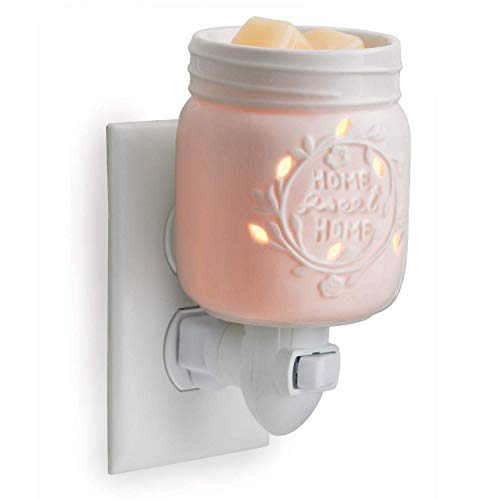It is essential to note that candles are prohibited on college campuses. However, is it permissible to use candle warmers in dormitory rooms, given that a candle warmer is a device that facilitates the use of candles without the need to light them?
Candle warmers may be permitted in dormitories since they do not require an open flame. They don’t pose the same fire risk as candles. They are a better option than candles for your dorm room. However, check your dorm’s regulations before bringing a candle warmer to your dormitory room.
Continue reading to learn if candle warmers are permitted in dorms and why they are safer than candles. In addition, we have compiled a list of candle warmer advantages at the end of this article.
Contents
Can You Use Candle Warmers In Dorms?
Since candles require an open flame and produce smoke, candles are prohibited in all dormitory rooms. Candles pose a fire hazard and could potentially set off the building’s smoke detectors.
Thankfully, candle warmers have emerged as an excellent alternative to using an open flame to scent a room. In addition, they are available in various styles to complement your dorm’s decor.
You need not worry about the candle warmers messing up your room’s aesthetics since you have the chance to invest in one that matches your room’s décor.
You can now enjoy your favorite fragrance in your hostel but more safely and legally. Candle warmers disperse fragrances from scented candles without an open flame.
How Do Candle Warmers Operate?
The first step in using a candle warmer is to place the candle on the plate, which will heat and melt the wax. As the candle wax melts, the aroma fills the room.
In addition, certain candle warmers may have a separate dish that permits the use of wax melts. However, the technique is the same.
The Advantages of a Candle Warmer
Using a candle warmer in place of a candle comes with a handful of benefits. Several of these benefits include:
Your dormitory room is safe
Use a candle warmer instead of a candle to create a safe environment in your dorm room. There is no fire risk associated with a candle warmer that would be present with a traditional candle.
Candle warmers do not use an open flame, so there is no cause for concern regarding fire hazards.
Candle Warmers Produce Less Heat
Candle warmers produce less heat than a lit wick. As a result, candle warmers extend the longevity of the fragrance.
This means your room will smell longer when using a candle warmer instead of burning a candle.
Candle warmers are cost-effective
Since candle warmers extend the scent’s longevity, you will use fewer candles, making them a safer alternative and potentially more cost-effective than traditional candles.
Easy to diffuse the smell across the entire room

The objective of a candle warmer is to obtain the candle’s scent without the flame. Due to the absence of a flame, the candle warms at a lower temperature, resulting in slower wax evaporation and a longer-lasting fragrance.
The fragrance will stay longer and be more concentrated than if a candle were burned. While a candle tends to create chemicals and soot when it burns, a candle warmer emits an odor since it lacks a different smell.
Things To Consider Before Using A Candle
Even if you are allowed to bring a candle warmer into your dorm, you should consider a few things before purchasing one:
Safety
Although it is evident that a candle warmer is way safer than a candle, you still need to be on your radar when operating a candle warmer. Some unforeseeable accidents can occur, meaning you need to be very careful.
While a candle warmer does not require an open flame to function, you should consider the heat generated by its lamp.
Even though the bulb within the warmer does not reach a high temperature, improper installation could still pose a fire hazard.
Ensure that your candle warmer does not touch any drapes, bedding, or clothing since the heat could trigger a fire.
Scent Throw
Scent throw refers to the strength or intensity of a candle’s fragrance. Always be mindful of your roommates. Try picking a really subtle and not-so-strong scent that may make your roommates uncomfortable.
Consider that some individuals are allergic to strong odors and may experience severe reactions. Ensure that your roommate is comfortable with the candle warmer in the room.
In addition, you must contact your Resident Assistant to identify which scents are prohibited in the dormitories.
Cost

Even though candle warmers may not be prohibitively expensive, some may be relatively costly. Many students are on a budget while in school; consequently, you should not sacrifice school necessities for a candle warmer.
If you find the price prohibitive, save until you can afford one.
Brightness
Some candle warmers release a considerable amount of light. Consider purchasing something that emits less light and is warmer.
Warmer temperatures may trigger you or your roommate to awaken due to the close quarters of your dorm.
Parting Shot
A candle warmer is a fantastic alternative if you cannot burn candles in your dorm but want to bring in fresh aromas. However, before investing in one, ensure your dorm management gives you the go-ahead to bring one with you. Some institutions do not permit candles or candle warmers, which is understandable.
A candle warmer has the advantage of not using an open flame. The warmth and coziness produced by a smoldering fire are part of the allure of a candle, and it is unlikely that a candle warmer can replicate this effect.
However, do not jeopardize your safety; get a candle warmer for your dormitory if your school permits it. You can still enjoy your favorite fragrances by using a candle warmer in your dorm room without the risk of an open flame.

I currently work as a medical receptionist, but my ultimate goal is to work as an occupational therapy assistant. Helping others achieve a better quality of life is something I’m after. That’s one of the main reasons I started this blog. Learn more about me.

